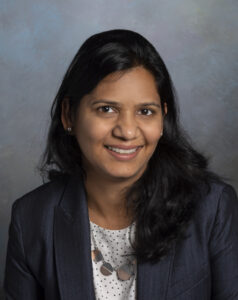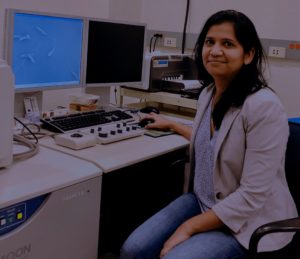
Assistant Professor of Biology Swati Agrawal
Bonnie Hall and Swati Agrawal, both faculty at teaching-focused institutions, recognize the challenges students face when presented with visually complex biomolecules. Both have looked for active-learning approaches to enhance student learning in this context.
One approach is having students explore printed three-dimensional models of biomolecules, such as proteins or DNA, which can provide a much better sense of the molecules’ structure than two-dimensional pictures in a textbook, thus helping them understand those molecules’ functions. Read more.

